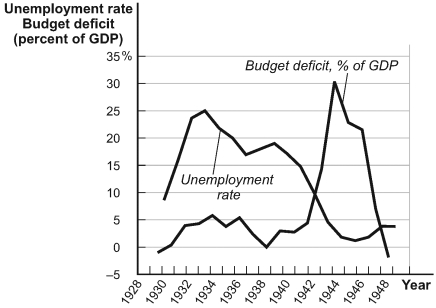Exam 18: Events and Ideas
Exam 1: First Principles233 Questions
Exam 2: Economic Models319 Questions
Exam 3: Supply and Demand292 Questions
Exam 5: International Trade 5274 Questions
Exam 6: Macroeconomics: the Big Picture168 Questions
Exam 7: Gdp and Cpi: Tracking the Macroeconomy434 Questions
Exam 8: Unemployment and Inflation354 Questions
Exam 9: Long-Run Economic Growth316 Questions
Exam 10: Savings, Investment Spending, and the Financial System402 Questions
Exam 13: Fiscal Policy Appendix Taxes and the Multiplier382 Questions
Exam 14: Money, Banking, and the Federal Reserve System468 Questions
Exam 15: Monetary Policy359 Questions
Exam 16: Inflation, Disinflation, and Deflation240 Questions
Exam 17: Crises and Consequences214 Questions
Exam 18: Events and Ideas322 Questions
Exam 19: Open-Economy Macroeconomics467 Questions
Exam 20: Graphs in Economics75 Questions
Exam 21: toward a Fuller Understanding of Present Value36 Questions
Select questions type
The macroeconomic theory that because workers and firms take all information into account, only unexpected changes in the money supply affect aggregate output is called _____ theory.
(Multiple Choice)
4.9/5  (31)
(31)
When other things are equal and using the classical model, an increase in the money supply leads to an equal proportional _____ in the aggregate _____, with no effect on aggregate_____.
(Multiple Choice)
4.8/5  (36)
(36)
Proponents of the theory of rational expectations contend that:
(Multiple Choice)
4.8/5  (40)
(40)
The economy is in a recession. The head of the President's Council of Economic Advisers is a student of economic history, and his philosophy tends to follow the Great Moderation consensus. What will this economist recommend or not recommend? Explain.
(Essay)
4.8/5  (42)
(42)
We now typically refer to the Keynesian term "animal spirits" as:
(Multiple Choice)
4.8/5  (41)
(41)
If real business cycle theory uses an upward-sloping aggregate _____ curve, aggregate _____ is _____.
(Multiple Choice)
4.9/5  (46)
(46)
Which of the following about new classical macroeconomics is FALSE?
(Multiple Choice)
4.8/5  (35)
(35)
The economy is booming and under inflationary pressure. There is also a budget surplus. The head of the President's Council of Economic Advisers is a proponent of classical economics. What will this classical economist recommend or not recommend? Will she advocate balancing the budget? Explain.
(Essay)
4.8/5  (30)
(30)
The General Theory of Employment, Interest, and Money was written by:
(Multiple Choice)
4.8/5  (34)
(34)
The Great Moderation consensus about macroeconomic policy is that:
(Multiple Choice)
4.9/5  (41)
(41)
An economy that is primarily agricultural will have a _____ aggregate _____ curve.
(Multiple Choice)
4.8/5  (36)
(36)
Keynes's theory did not endorse the use of monetary policy during the Great Depression because:
(Multiple Choice)
4.8/5  (36)
(36)
Use the following to answer questions :
Figure: Fiscal Policy and the End of the Great Depression  -(Figure: Fiscal Policy and the End of the Great Depression) Look at the figure Fiscal Policy and the End of the Great Depression. The period from 1933 through 1936 would seem to indicate that in the short run a moderate level of government deficit spending can _____ the unemployment rate.
-(Figure: Fiscal Policy and the End of the Great Depression) Look at the figure Fiscal Policy and the End of the Great Depression. The period from 1933 through 1936 would seem to indicate that in the short run a moderate level of government deficit spending can _____ the unemployment rate.
(Multiple Choice)
4.9/5  (41)
(41)
Showing 21 - 40 of 322
Filters
- Essay(0)
- Multiple Choice(0)
- Short Answer(0)
- True False(0)
- Matching(0)